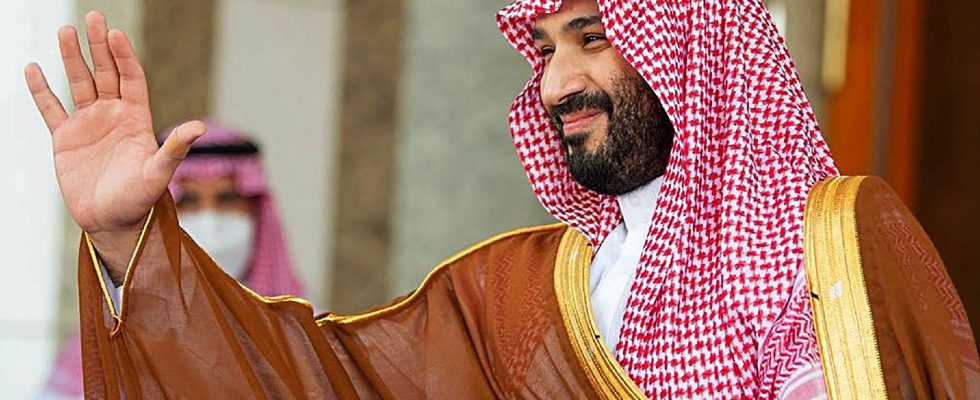It all started with a question asked on the official website of the Saudi Ministry of Tourism. At the beginning of May, a stranger asks: “Are homosexuals welcome in Saudi Arabia?” The answer: “We don’t ask anyone to divulge intimate information and we never have. Everyone is welcome to visit our country.” Since then, a heated controversy has erupted in the Middle East about the reality of the acceptance of the LGBT community in Saudi Arabia. Some saw this statement as hypocrisy in this territory which prohibits homosexuality, as well as life as a couple outside marriage. Others considered it a “shame”.
This unusual statement is part of the developments driven by Mohammed bin Salman (MBS) since he came to power in the 2010s, even before taking the throne in 2017. The prince presents himself as a modern leader. That same year, for the first time in Saudi history, women were allowed to drive cars. Music festivals, cinema, nightclubs have opened to encourage tourism, while taking care not to violate the requirements of Sharia. Alcohol is still prohibited, as is the removal of the veil, except on certain beaches, such as that of Jeddah, in western Saudi Arabia, where women are allowed to wear bikinis. On the other hand, this progress has not reached the area of freedom of expression. As of 2017, 31 journalists are still imprisoned without trial. In 2022, Salma Chihab was sentenced to thirty-four years in prison for posting tweets criticizing power. The death penalty is still practiced: last year, some 150 executions took place in the kingdom, 81 of them in a single day. But the crime that made the most noise was the assassination of journalist Jamal Khashoggi at the Saudi consulate in Istanbul in 2018. MBS was the first accused by American and Turkish investigators.
“Collapse of Morality”
Despite the changes displayed to promote tourism, this new announcement on homosexuality seems surprising. The law, like Saudi society, considers it an unforgivable sin. Turki Chalhoub, a Saudi journalist followed by more than 1 million people on Twitter, considered that this response from the Ministry of Tourism represented “a collapse of morality”, before specifying: “Bin Salman wants to make Saudi Arabia similar in Dubai and Abu Dhabi in debauchery, unaware that this territory contains Mecca.”
Conversely, “Wajeeh Gay Lion”, a gay Saudi activist who has taken refuge in the United States, is indignant: “The most ridiculous thing is that homosexuality is punished as severely as rape: between three and seven years At the same time, the Saudi state presents itself as a country that welcomes differences. However, its citizens are forced to seek asylum elsewhere because of their sexual identity, which is not compatible with the state. of the society.” For him, before starting to invite homosexual tourists, the regime should already start by changing these laws in this area.
To better understand this new announcement, we inquired with the Saudi Ministry of Tourism. “We invite everyone to visit our country, we were told. But visitors must respect local cultural norms and laws.” With a link that details these standards: “Crude language, loud behavior and intrusion into the boundaries of others are behaviors that indicate a lack of respect. It is advisable to observe public decency at all times.”
For Omar Abdulaziz, a Saudi activist, opponent of the regime and living in Canada, this is “total hypocrisy”: “How can we allow homosexuality and, at the same time, ban it in public places? ?” For his part, Turki al-Rajaan, a specialist in international law, comments: “The Saudi state does not ask your sexual orientation when you visit it, and it has nothing to do with the fact that the visitor is gay or No. If you practice your homosexuality in a private place, the State will not interfere with you, but in a public place, it is illegal and prohibited.”
However, Saudi law does not differentiate between the practice of homosexuality in public or private places. Without forgetting that the sanctions are not always limited to prison sentences, nor do they concern the simple sexual relationship. In 2018, Saudi police arrested a group of boys walking around in women’s clothing, accusing them of “looking like women”. The following year, five men were executed for homosexuality.
The opening of the country to LGBT tourists in Saudi Arabia thus remains ambiguous: on the one hand, it is not forbidden to go to this country as a gay or trans person and, on the other, the kingdom opposes a draft resolution at the United Nations concerning the rights of homosexuals. The Saudi representative to the UN, Faisal bin Hassan Trad, had argued: “Anything related to homosexuality and any infringement or abuse of the sovereign right of the Saudi kingdom or derogation from Islamic law or infringement of the independence and the integrity of its judiciary, is considered interference in its internal affairs.”
* Writer and poet born in Damascus, Syria, Omar Youssef Souleiman took part in the demonstrations against the regime of Bashar el-Assad, but, tracked down by the secret services, he had to flee his country in 2012. A refugee in France, he published by Flammarion The Little Terrorist, The Last Syrian And A room in exile.
